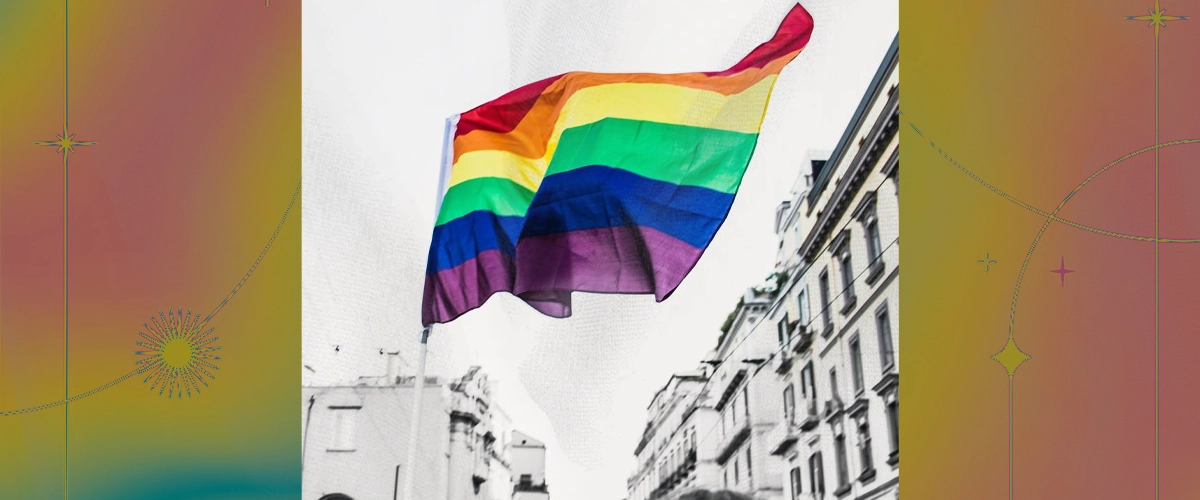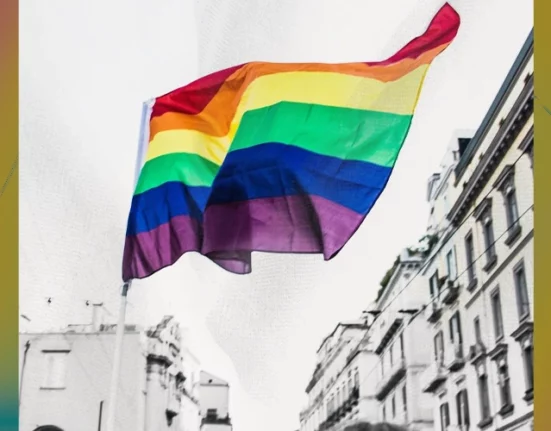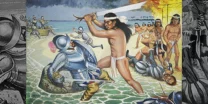THROUGH the films, ‘Markova: Comfort Gay’ and ‘Aishite Imasu 1941: Mahal Kita’, a brave representation of people in the LGBTQIA+ community were shown in the time of the Japanese settlement.
But, while the surviving members of the LGBTQIA+ community were freed at the time of independence; it is a wonder whether they were really “liberated” and given their independence as a member of society. It begs the question, on whether the community was given freedom or did they remain under the shackles of the misjudgments of society? Was the LGBTQIA+ community freed from their settlers or were they kept away from their independence?
Walter Dempster Jr., or also known as ‘Markova’, once told his story of bravery during the Japanese occupation and once said when he was still alive in an unknown interview that: “As humans, we won’t live long. Revealing my own story is my way of inspiring other gays who continue to be oppressed today. By my act, I may have probably given freedom to many other gay people.”
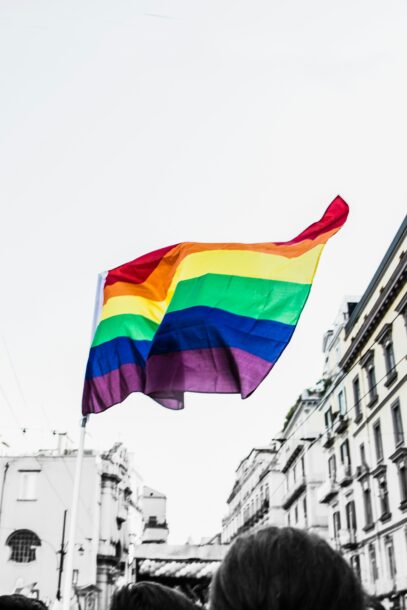
Photo Courtesy: Unsplash
The implication that more parts of the LGBTQIA+ community is still being oppressed in spite of the country’s liberation, even if they fought just as hard as the non-queer heroes, is a clear manifestation that the community is still suffering from not having their own rights. It is clear that the community still does not have their independence.
SOGIESC Bill
In an exclusive interview of RepublicAsia, Ms. Ameerah ‘Amie’ D. Milano explained her insights and sentiments regarding the following: (1) the SOGIESC Bill; (2) the Anti-Discrimination Act; (3) Same-Sex Marriage/Civil Union; and (4) Fostering Among Same-Sex Couples.
Ms. Amie is a college professor at Far Eastern University – Manila (FEU Manila). Apart from teaching, she is also currently the Coordinator of the Gender and Development Desk (GADD) in the Academic Affairs Office at the university.
2021 to 2023 Amnesty Philippines Chairperson Rocky Rinabor once said, “In a country where marginalized groups already experience hostile and discriminatory environments, women and LGBTQIA+ people face disproportionately high levels of inequality. By ignoring or delaying the enactment of laws to combat there, the Philippines loses opportunities to reaffirm the core fundamental belief that human rights must be respected for all, regardless of sexual orientation or gender identity.”
Despite what many people think, every person has a SOGIESC. SOGIESC, or ‘Sexual Orientation, Gender Identity, Gender Expression, and Sex Characteristics’, is a concept not foreign to people. These are traits that are innate among human beings, and are simply labeled using new and inclusive language.
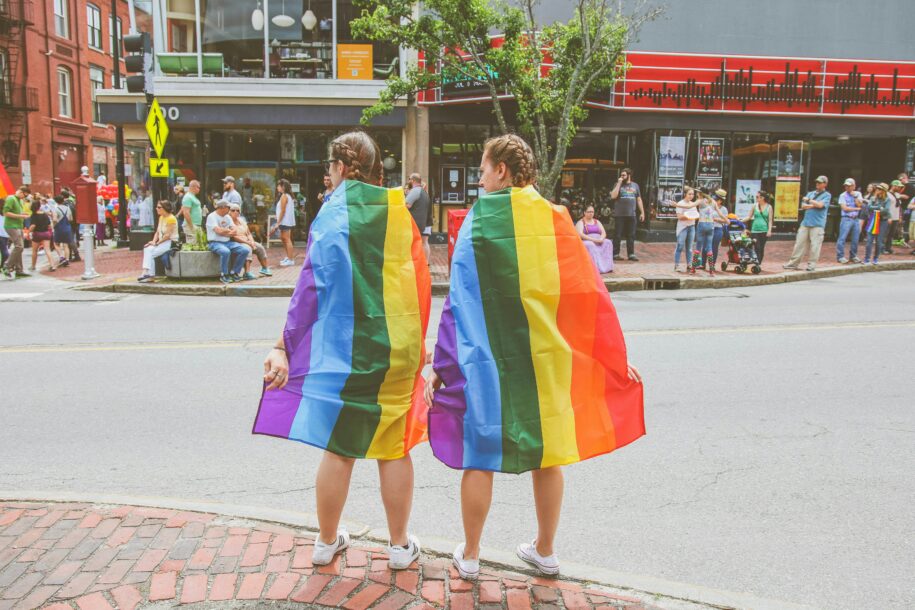
Photo Courtesy: Unsplash
What Filipinos fail to understand is that legislating such a bill does not grant the queer community ‘special rights’; more so, it evens the playing field for all people from all walks of life, so that no one is pushed aside to the margins.
Miss Milano emphasized, “The SOGIE Bill, if passed, will not be a panacea for all the struggles and oppression that all genders confront, but rather an initial step toward protecting us from gender-based discrimination and violence–physically, verbally, and psychologically.”
While this may be an uncomfortable truth to confront, recognizing the rights and humanity of the LGBTQIA+ community through the SOGIESC Bill does not lessen the privileges that straight and cisgendered people enjoy. Enacting it would only mean equal rights for everyone.
Anti-Discrimination Act
First and foremost, the Anti-Discrimination Law, according to the Senate Bill No. 1619 is “an act that prohibits discrimination on the basis of ethnicity, race, religion, SOGIE, civil status.”
The SOGIE Bill is also known as the Anti-Discrimination Act at first—like mentioned protects the community as a whole, discrimination, in this context, is defined in the Senate Bill No. 1934 (2020) as something that “occurs when a person is treated less favorably that another person in the same or comparable circumstances on the ground of their SOGIESC.”
To put simply, the Anti-Discrimination Act will be the community’s saving grace against any kind of discrimination they may experience because of their SOGIE, more often than not, the society makes fun of people in the LGBTQIA+ community because they do not adhere to heteronormativity.
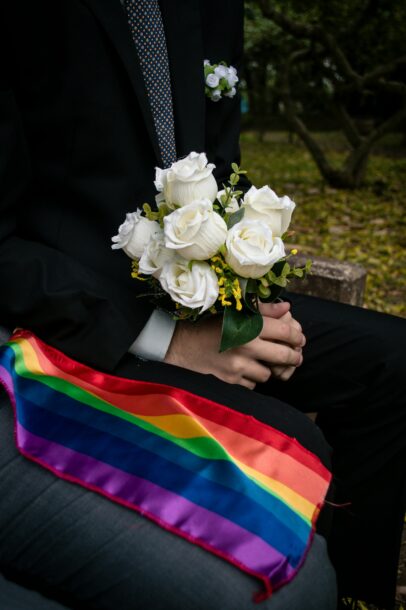
Photo Courtesy: Unsplash
Currently, it is such a major issue as to why even being born in a generation where education about the LGBTQIA+ community is accessible, the people still discriminate against them just because there are no repercussions about it.
Miss Milano mentions that: “Anti-Discrimination, in accordance with the SOGIE Bill and in light of the slow progress of our legislation, will pave the way for a better understanding of how prejudicial views, gender roles and biases show itself in our homes, media, and educational institutions.”
This points out that discrimination of the LGBTQIA+ community, does not only come from strangers outside the community but also may be inside their homes and society, which just strips their rights to gender expression fully—as to why the Anti-Discrimination Act will be their shield and chain to pull in order to gain their independence.
Same-Sex Marriage/Civil Union
Despite the separation of the church and the state, major religious groups in the Philippines hold significant power in determining the legalization of Same-Sex Marriage/Civil Union in the country. As such, queer Filipinos remain to be among the queer individuals across the world who are deprived of such a basic human right.
Ms. Milano supports this notion in the interview, “With the clear provision on the separation of the church and the state, the state must always fulfill its duty to its citizens.”
For a sentimental nation like the Philippines, marriage is a life milestone that everyone seeks to experience in time. To starve same-sex couples in the Philippines the right to marry one another is an outright disrespect not only to their love, but also to their humanity.
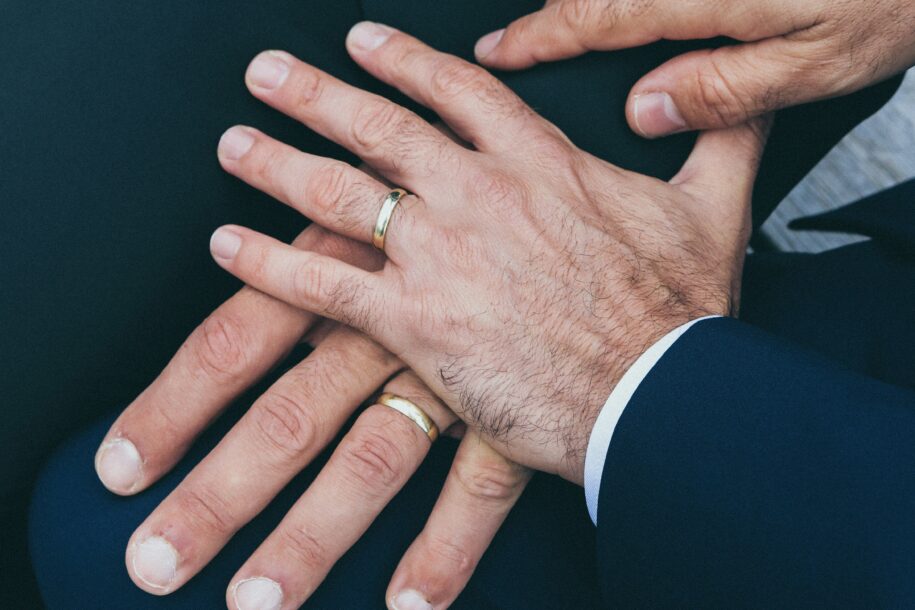
Photo Courtesy: Unsplash
Expressing one’s love through marriage should not be a privilege only few people have access to. Such a conundrum begs the infamous questions, does love between men and women differ from those of couples with the same sex? Is the love between couples of the opposite sex greater than those who are not?
At the end of the day, love is love, and not one person should be deprived of their right to marriage. And as Ms. Amie concluded in her interview, “Mapagpalaya ang tunay na pag-ibig.”
Meaning, love, regardless of gender, is a liberating thing to experience, and like everyone else, queer people deserve to be free.
Adoption / Fostering Among Same-Sex Couples
In the Philippines, there is no law that states that members of the LGBTQIA+ community cannot adopt a child, an individual can adopt a child as long as they fulfill DSWD’s requirements—this is to ensure that the child will be safe in their care. However, what is not allowed in the Philippines is for same-sex couples to file for a joint-adoption.
Since Same-Sex Union is not allowed in the Philippines, it negates the couples’ authenticity as a couple, therefore cannot share custody for a child. Miss Milano states that: “At the current, there are over 6,000 Filipino children that are in need of a permanent home and lack access to basic human rights and information. While there are procedures in place for fostering or adopting, there is a great deal of bureaucracy that prevents foster parents from succeeding. Foster assistance, when thoroughly planned on ground, will benefit both the foster child and the foster parents.”
Therefore, the country’s sovereignty should give same-sex couples a chance to experience the family that they rightfully deserve to experience, as Miss Milano mentioned, the bureaucracy already makes fostering and adoption hard for heterosexual couples—more for the same-sex couples.
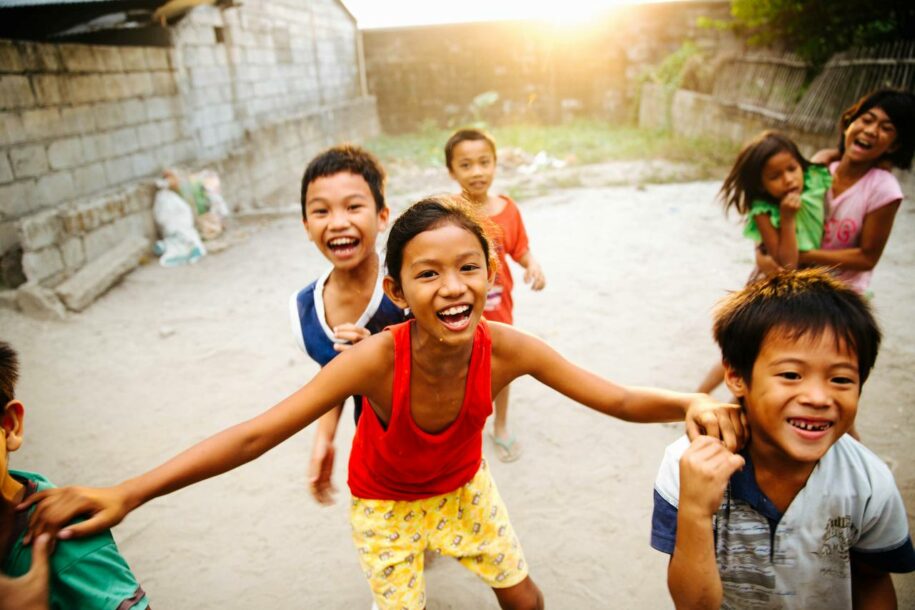
Photo Courtesy: Unsplash
In mind of how many Filipino children could acquire a family if only there was a law that would support not only heterosexual couples to fasten the process but also allow same-sex couples for joint adoption, then there is a higher chance for both these children and same-sex couple to have the freedom of having the choice to build a family.
Indeed, there is a rainbow after every storm. The quest for queer liberation, albeit painstaking, is a path that needs to be crossed. Measures such as enacting the SOGIESC Bill and the Anti-Discrimination Act, and allowing same-sex couples access to foster care and marriage, are tiny steps toward freeing the LGBTQIA+ community from the shackles of discrimination and hate. In celebration of Pride Month, it is significant to recognize the need to call for equal rights for all.
To love is to be freed, and to be freed is to be happy.
With reports from Ashley Kristieanne Ignacio and Aaron Jon S. Bernardino

